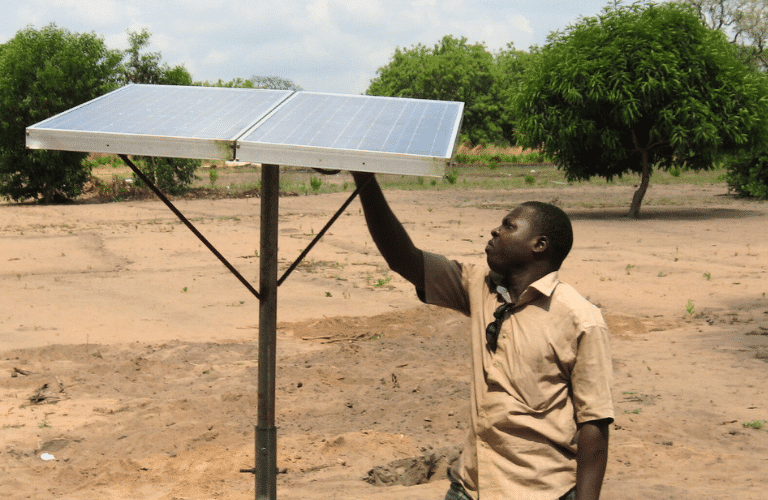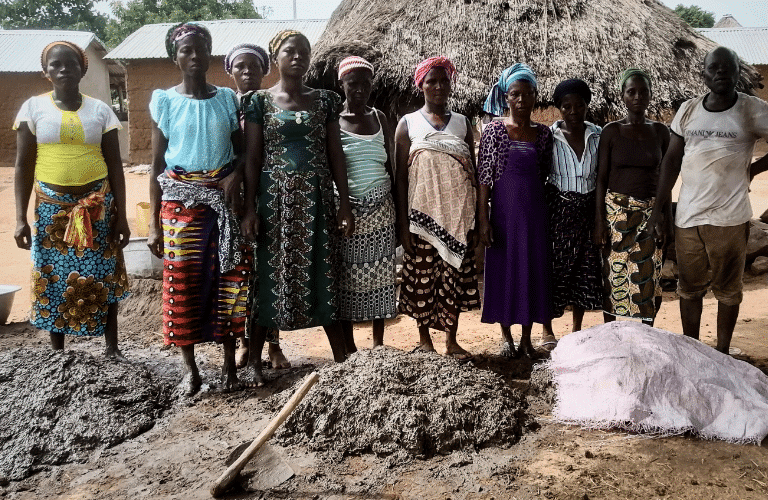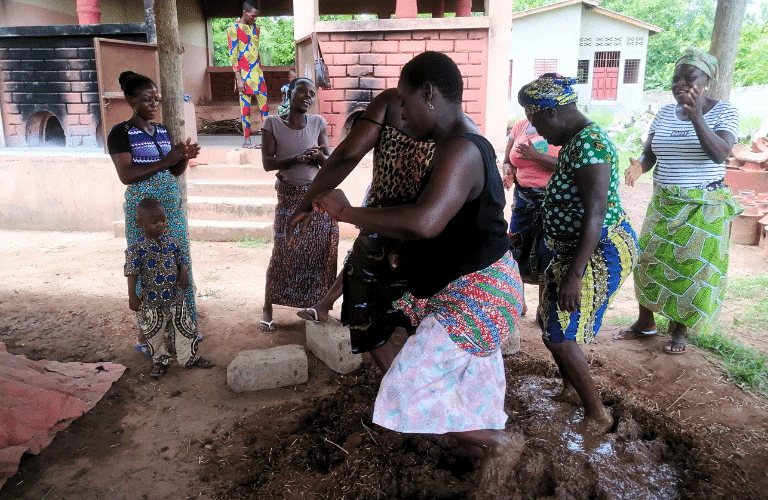Geres facilitates access to energy and energy efficiency for low-carbon development in Benin
In 2023, a new project is being launched in Benin to enable small local businesses to develop their activities in rural areas through access to electricity and improved cooking stoves. Overview.
Access to electricity, an essential vector for rural development in Benin
In Benin, a small proportion of the rural population (18%) has access to electricity, compared to a large proportion of the urban population (66%). At Geres, we believe that developing the rural economy promotes local stability and equity.
Access to clean renewable energy can therefore be a solution, but rural electrification programs through mini-grids (limited power generation centers) do not always meet the needs of local artisans (who use electricity for business purposes). In addition, the processing of agricultural products still relies on polluting and inefficient cooking or smoking technologies, which create health problems for women and put great pressure on natural wood resources.
Based on Geres’ expertise in Zones d’Activités Électrifiées (present in several countries), ARESS’ expertise in mini-grids and solar kits, and IDID’s experience in supporting rural entrepreneurs, the objective of this new project is to promote low-carbon development in rural areas of Benin through access to energy and energy efficiency for productive activities.
Also read: Our project for sustainable energy access for all
The project should improve the situation of entrepreneurs by increasing their income. To consolidate 40 direct jobs and 60 indirect jobs (access to electricity), including those of 2,000 women who are members of women’s food processing groups (clean and efficient cooking). On the environmental side, the challenge will be to reduce the carbon emissions emitted by these productive activities, which is about 17,000 eqT CO².
Access to electricity and sustainable cooking at the heart of the beninese project
Initiated in 2023, the project is scheduled to last three years. The program has two main components: access to electricity centered around one commune where a mini-grid will be set up (Idajo, commune of Ouéssé) and access to cooking stoves for professionals covering 5 communes.
A territorial energy diagnostic will be conducted to identify the users and the specific needs of Very Small Enterprises (VSE), as well as the local offer of solutions. It will also identify the barriers to entrepreneurship for women.


Women food processors in the front line of the project
Beninese women processors are the first to be affected by the pollution created by their cooking technology. It is therefore essential that they have access to efficient technical energy solutions to reduce wood and energy consumption and improve their sanitary conditions.
In addition, Geres’ teams will support the economic development of these entrepreneurs to maximize the impact of improved cookstoves by strengthening their production and distribution. The transformers will be trained in sales and entrepreneurship. A model that has already proven itself in other Geres development projects abroad. Finally, a system for monitoring the distribution and use of the stoves will be set up, with the aim of including this sector in a carbon finance project.

For an efficient access to electricity, several possible energy solutions
It is important to know that here, access to electricity via technical solutions for productive actors is first done by a feasibility study. This induces an analysis of the solutions adapted to each VSE, of their financing and investment.
For the moment, different options are being considered:
- a ZAE (electrified activity zone) that can accommodate about ten MSEs
- Specific solutions for each user with a connection to the existing mini-grid
- Individual solar kits
Support and training: an essential part of making the project sustainable
Then there is the support to the craftsmen (20 VSEs) so that they take full advantage of the adopted energy solutions. To do this, the collaboration with IDID (a Beninese NGO with a strong experience in supporting entrepreneurs in agro-ecology) will provide support to the various users.
Several business trainings, financial intermediation with Microfinance Institutes (MFIs) as well as a consolidation of the inclusive dimension by taking into account the constraints of Beninese entrepreneurs in rural areas will be implemented.
It should be noted that personalized support will also be provided according to the needs and desires of each entrepreneur. In total, 20 entrepreneurs and 108 groups of women food processors will benefit from this project.
See you in a few months to follow the progress!
VOUS SOUHAITEZ AGIR EN FAVEUR DE LA SOLIDARITÉ
CLIMATIQUE ET SOUTENIR NOS ACTIONS ?
Dites-nous qui vous êtes et découvrez vos moyens d’action
CITOYEN·NE·S
Parce que la Solidarité climatique est l’affaire de toutes et tous, le Geres vous donne les clés pour passer à l’action.
ENTREPRISES
En tant que dirigeant·e d’entreprise, employé·e ou client·e responsable, vous avez le pouvoir d’agir au quotidien.
INSTITUTIONS & COLLECTIVITÉS
Soutenez nos actions en France et à l’international et devenez un acteur de la Solidarité climatique.
FONDATIONS
En vous engageant aux côtés du Geres, vous contribuez à la mise en œuvre d’actions innovantes et concrètes.
